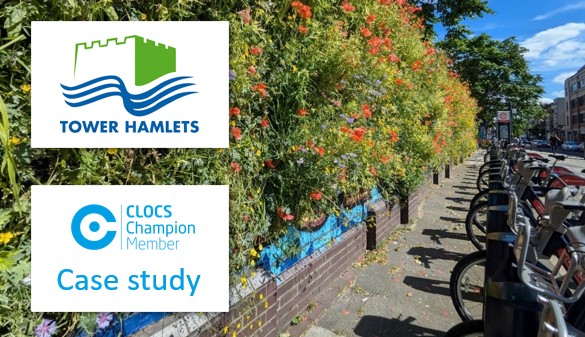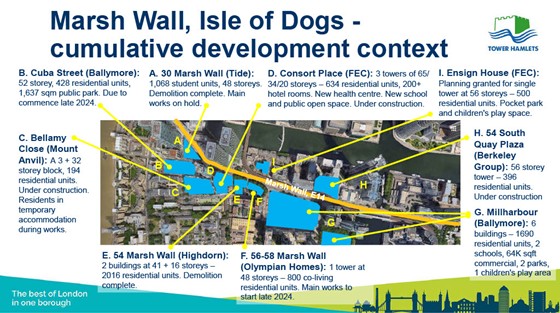
Tower Hamlets has some of the densest and fastest growing areas in the country. In 2021, the Development Coordination team at Tower Hamlets Council was set up to work with developers, colleagues and residents across the borough to reduce the impacts from construction and to promote community safety around construction sites.
To begin with the team carried out an extensive review of the borough’s Code of Construction Practice, a guidance document setting out standards expected from developers and contractors during construction.
The CLOCS Standard was introduced into both the guidance and our (new) standard Construction Management Plan (CMP) templates, to reflect our existing local plan policy requiring developers to meet the CLOCS Standard.
Becoming a CLOCS Champion led to the formation of a CLOCS Regulators Working Group, made up of the various CLOCS Regulator members, which has been invaluable in supporting us in establishing a new (fee-based) service to manage and monitor CMPs within our Highways team.
Strategic coordination of development is managed via hosting regular Construction Forums and site visits with developers and contractors working within the borough. The Forums and site visits are a chance to share updates and discuss examples of both good and not so good construction practices. CLOCS have been a regular feature of these Forums and have led to us jointly arranging training in CLOCS for development teams and council officers alike.
The Forums have also been key to building closer relationships both between developers and the Council and across development sites leading to a noticeable improvement in compliance with planning conditions and swift resolution of any challenges encountered.
This map shows the extensive growth on just one street located in the Isle of Dogs. Each of these projects has an impact on the local community and combined, the impact could be hugely disruptive and present sifnificant risks to our community.
This demonstrates the need for a robust and collaborative approach to construction logistics planning to mitigate the impacts on those who live and work in this area.

A key focus of the site visits has been ensuring the public realm around a construction site is safe and accessible for all residents. The team are now partnering with the Construction Advisory & Innovations Team at TfL and Real (An organisation supporting those with disabilities) to understand the challenges and dangers faced by disabled residents around construction sites. We are engaging with disabled residents through focus groups, walkabouts and an online survey. Feedback received will inform new guidance setting out how developers need to consider the safety and accessibility needs of all residents including those with visible and not-visible disabilities.
As well as promoting road safety around construction sites, the team have also been pursuing other initiatives that will reduce the adverse impacts of construction.
The team commissioned Volterra Consultants to carry out a Health Impact Assessment looking at the cumulative impacts from construction along Marsh Wall (near Canary Wharf), over a 15-year period. The study was the first of its kind in the UK and considered the impact from the ongoing works across several major development schemes in the area. Research included extensive engagement with residents and found that the scale and cumulative nature of disruption caused by construction including noise, dust, street layout adjustments and road closures was having a detrimental impact on wellbeing.
The research recommendations resulted in the Council deciding to stop weekend works and developments (approved after April 2023) now need to apply for special exemption under s61 of the Control of Pollution Act 1974 for any weekend works.
To support biodiversity gain across the borough in temporary works stages, the team partnered with the NHS and Vertical Meadow to demonstrate the ease of installation and benefits of a ‘living wall’ system on a hoarding within Whitechapel. The ‘green hoarding’, which covers existing graffiti, includes native wildflowers and has improved biodiversity, air quality, cooling and visual amenity in the area. Residents and developers have responded positively to the pilot.


